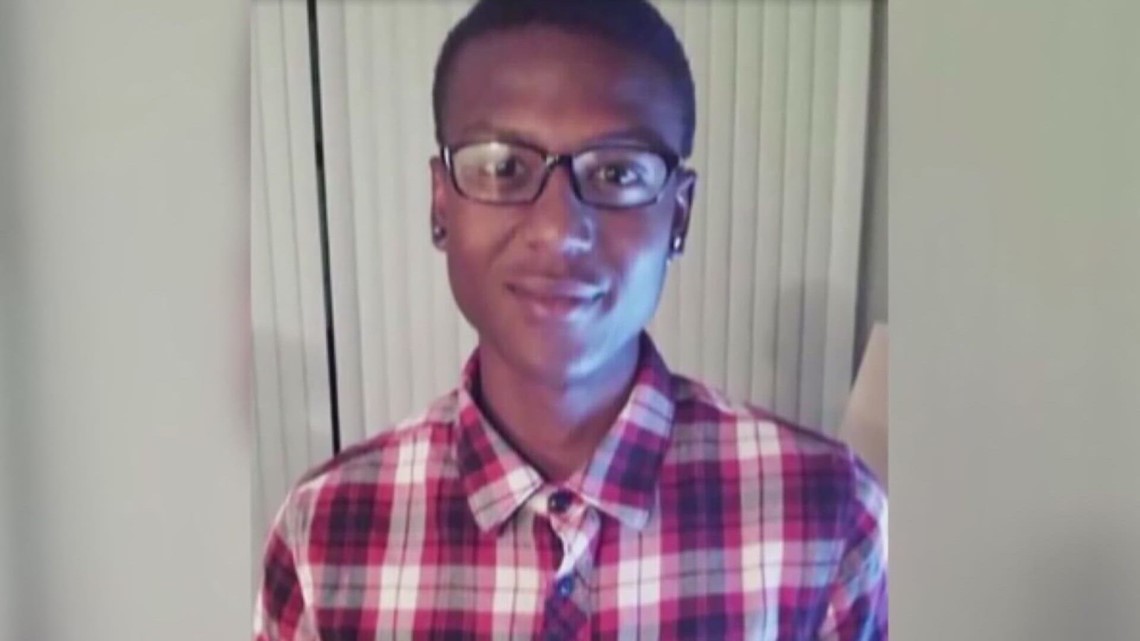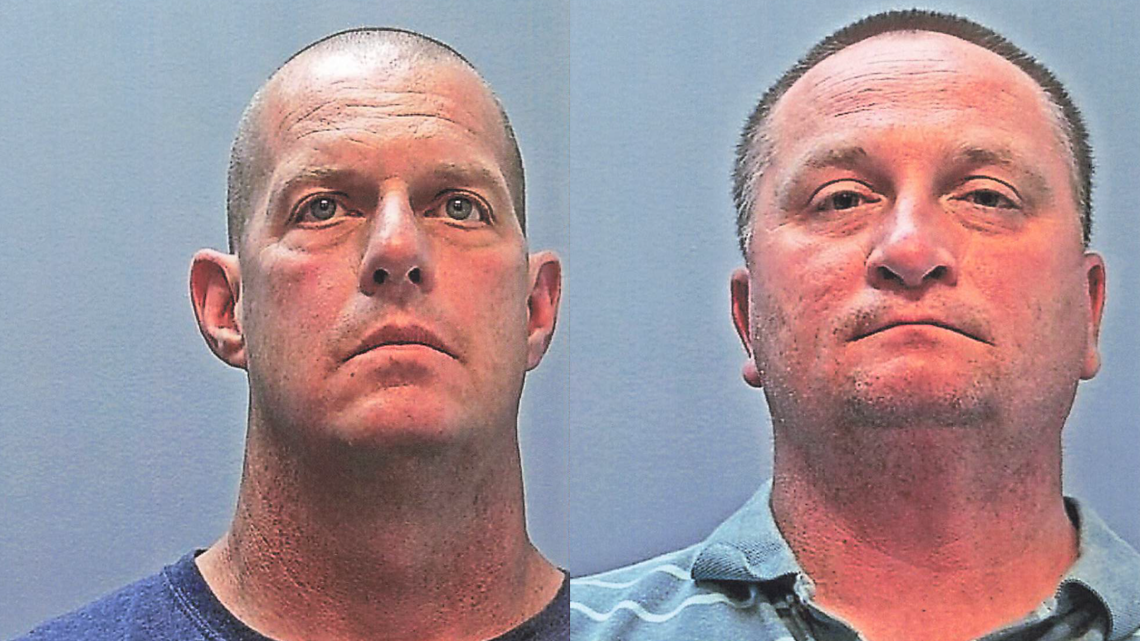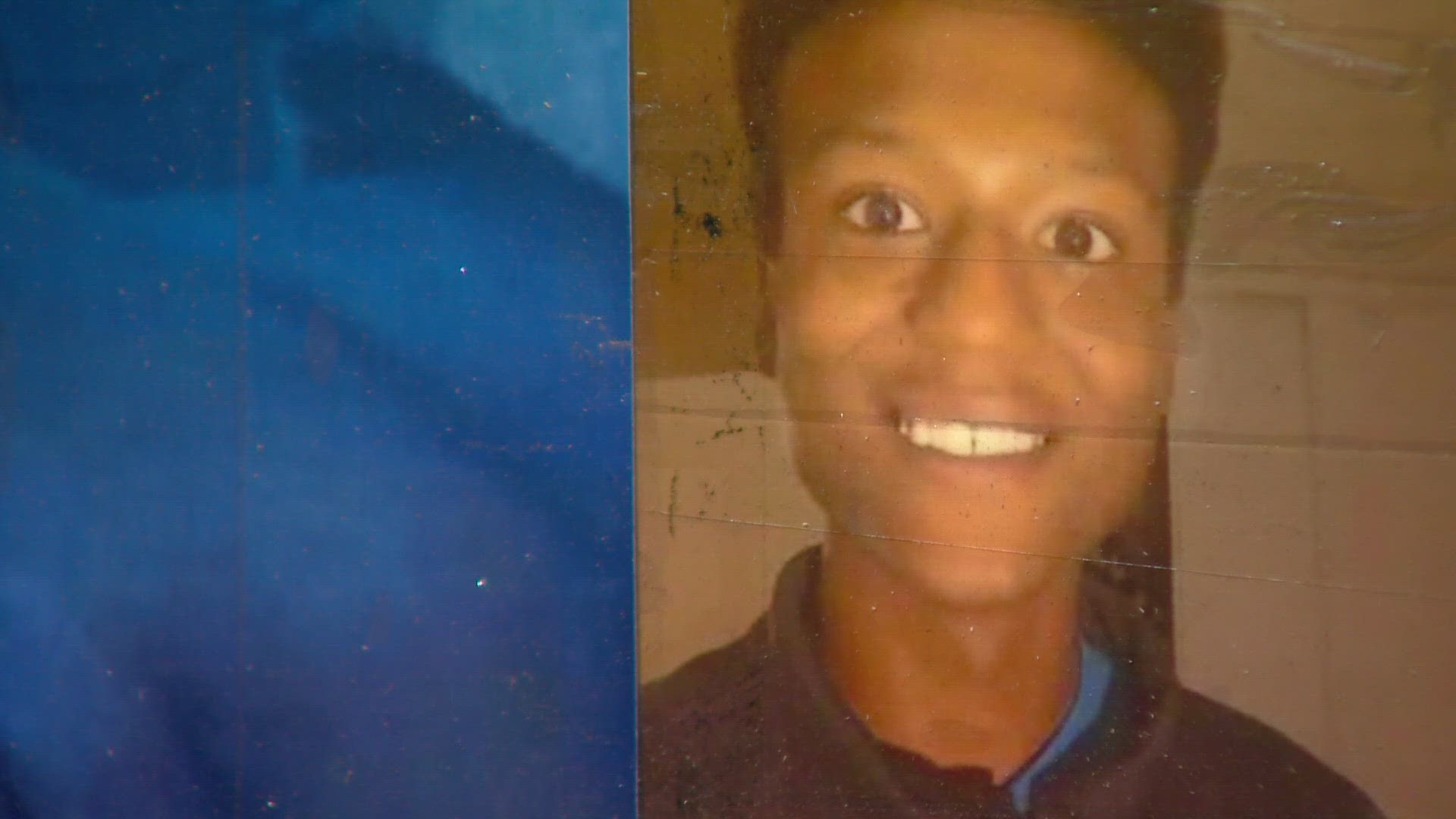AURORA, Colo. — A forensic pathologist who testified Wednesday told jurors repeatedly that in all of the video footage he reviewed, he never saw Elijah McClain exhibit signs of excited delirium, a controversial medical condition that, at the time, was the only one that would have allowed paramedics to use ketamine.
Dr. Roger Mitchell was the last witness to take the stand for prosecutors in their case against Aurora Fire Rescue paramedics Jeremy Cooper and Peter Cichuniec, who are each charged with reckless manslaughter and multiple counts of assault for McClain's death.
They injected McClain with the sedative on Aug. 24, 2019, after he had been contacted by three Aurora officers and was taken to the ground in a struggle. His heart stopped and he later died.
During the struggle, McClain was placed in a carotid hold that caused him to go unconscious briefly. He had also vomited numerous times and said repeatedly that he could not breathe.


On Wednesday, Mitchell said he had spent countless hours reviewing reports and videos from before and during McClain's encounter with officers and medics. He was not involved in McClain's autopsy but said as a result of what he reviewed, he concluded that McClain's manner of death was homicide.
He listed the cause of death as "complications following acute ketamine administration during violent subdual and restraint by law enforcement and emergency response personnel."
In McClain's initial autopsy report from the Adams County coroner's office, his cause and manner of death were listed as undetermined.
In court, prosecutors showed a video of McClain purchasing drinks at a store before being stopped by officers. Mitchell was asked how it helped him form his opinions in the case.
"It's really the absence of any major action to show that’s erratic - it's the absence of that - this is pretty much a normal interaction between him and the store clerk," Mitchell said.
He was shown another video - depicting Officer Nathan Woodyard's initial contact with McClain after a 911 caller reported that he was acting suspicious and wearing a ski mask.
"He’s oriented to person, place, and time. He's exchanging dialogue, you know, he says what he wants. He's responding to questions - so he seems normal from a standpoint of being able to have a conversation with the law enforcement personnel," Mitchell said.
"Did you see any signs or symptoms of excited delirium in that video?" asked prosecutor Shannon Stevenson.
"No," Mitchell replied.
Excited delirium is a medical condition - to believers - that is dangerous and marked by superhuman strength, imperviousness to pain, and severe agitation. When Aurora officers told Cooper and Cichuniec that McClain was "definitely on something," was "crazy strong" and had almost done a pushup with several officers on his back, Cooper and Cichuniec concluded McClain was suffering from excited delirium - which resulted in a decision to inject him with ketamine.
During court on Wednesday, Mitchell watched numerous body-worn camera videos of the roughly 10-minute struggle with officers during which McClain steadily went downhill. After each, he noted that he did not see any indications of excited delirium.
RELATED: Interviews with paramedics contradict body camera footage from incident with Elijah McClain
"Individuals who are believed to have excited delirium would be individuals who would have bizarre behavior. They’re acting erratic. They’re not responding to commands. They’re not easily understood," he said.
"The suggestion of super-human strength is all part of this excited delirium constellation of symptoms that is attributed to excited delirium, but being able to have a conversation, being able to express oneself this way while being subdued is not what is professed as excited delirium."
Mitchell pointed out that during the struggle McClain could be heard crying out in pain while medics were present -- an indication he was not impervious to pain.


By the time paramedics arrived, Mitchell told the jury McClain was in "bad shape" and suffering from acidosis, or a buildup of acid in the blood, and hypoxia, or a lack of oxygen, as a result of the struggle with officers. Mitchell said he believed McClain had inhaled his vomit into his lungs, which further impaired his ability to breathe.
Just before the ketamine injection, Mitchell said McClain was "deteriorating really rapidly."
"He's already subdued. He's already in a place where he can be moved by the people that are handling him," Mitchell told jurors. "He's not struggling. It's not clear why he's even being given ketamine at that point. There's no reason for it."
Cooper and Cichuneic's attorneys have argued that officers are to blame because they provided them with misleading or outright incorrect information.
On cross-examination, they used Mitchell to point out that McClain's declining health began well before paramedics arrived and was the direct result of officers' actions.
"You observed Elijah McClain aspirate [inhale vomit into lungs] and begin to deteriorate before fire arrived on scene, right?" asked Michael Pellow, an attorney for Cooper.
"Yes," Mitchell replied.
"While he was still only in the custody of police officers, right?"
"Yes."
"And subject to whatever they were doing to him?" Pellow asked.
"Yes," Mitchell responded.
Prosecutors pointed out that the medics failed to do their own assessments of McClain and didn't even check basic vital signs before giving him 500 milligrams of ketamine - a dose meant for someone weighing roughly 80 pounds more than McClain.
Jurors will return at 9:30 a.m. Thursday when the defense is expected to begin presenting its case.
The paramedics are the last two of the five men indicted in McClain's death to go to trial. In the first trial, a jury returned a split verdict for Aurora officers Randy Roedema and Jason Rosenblatt. Roedema was found guilty of criminally negligent homicide and third-degree assault and will be sentenced in January. That same jury acquitted Rosenblatt of all charges.
A separate jury acquitted Aurora officer Nathan Woodyard. Following his acquittal he was eligible to return to Aurora Police, and in late November the city confirmed he elected to reintegrate with the department and was on restricted duty.
SUGGESTED VIDEOS: Elijah McClain death

